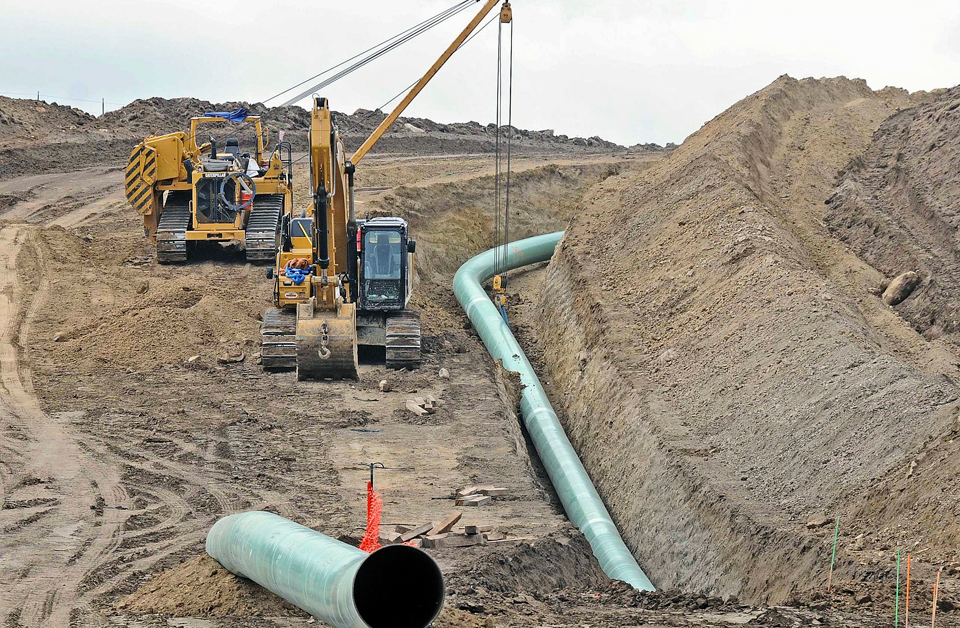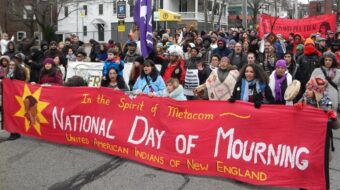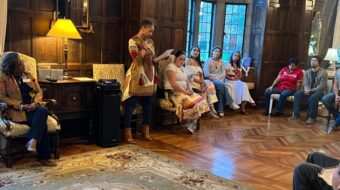
On March 25, tribal nations won a notable victory in their long-standing war with the Dakota Access Pipeline (DAPL) when U.S. District Court Judge James Boasberg for the District of Columbia ruled that the U.S. Army Corps of Engineers must develop a full environmental review of the much-maligned project.
This was a historic triumph for the Standing Rock Sioux Tribe, which with the support of other tribal nations and environmentalist allies, has led the fight against DAPL. The valiant water protectors who stood on the front lines of this struggle in the face of violent, racist attacks by barbarous, brutal Trump-encouraged law enforcement officers must also be acknowledged. (This writer was also at the Standing Rock protests and witnessed the inspiring courage and determination of the protesters).
Boasberg has finally found that the Corps’ prior reviews were legally insufficient under the applicable provisions of the National Environmental Policy Act (NEPA). He was reportedly heavily influenced in his decision by a recent March 1 ruling of the D.C. Circuit Court of Appeals which ordered that the Corps vacate a permit it had issued to a utility company for the building of transmission towers near historic Jamestown, Va.
A full Environmental Impact Statement (EIS) was ordered in that case, National Parks Conservation Association v. Semonite. This is considered a blockbuster decision that has broad implications for tribes nationwide. This case wholly recognized that federally recognized tribal nations have a right to full consultation during the preparation of the EIS.
It was also taken into account that Indigenous nations feel the Corps does not take their concerns seriously and will issue a permit without fully considering the available project alternatives or a project’s impact on tribal heritage, culture, resources, or religious practices.
Citing Semonite, Boasberg has ordered that the Corps prepare an EIS. In his 48-page opinion, the jurist concluded that “too many questions remain unanswered.”
But, while his decision is laudable, Boasberg has left a major question unanswered: Will oil continue to flow through the pipeline in the meantime? It has been in service since June 2016, and this matter is key. Not to rain on anyone’s parade, but, this where we need to beware. Every single day, this infamous pipeline sends 500,000 barrels of oil across tribal lands.
Boasberg has ordered representatives of the opposing parties in the case to present briefs on the issue of whether the easement should be vacated (meaning the oil should stop flowing) while the Corps completes its EIS. The vacating of such an easement that violates NEPA standards is said, even by Boasberg, to be the “standard remedy.” Keep in mind, a full environmental review by the Corps could take years. The Corps could drag its feet.
Will Boasberg follow the law or, to use an old mainstream axiom, just give the much aggrieved Indigenous nations the proverbial “half loaf of bread”? The issue now before the court is: Will the pipeline be shut down while the EIS is being prepared? In the past, Boasberg has moved with glacial slowness.
Previously, this journalist has with scathing criticism referred to Judge Boasberg in very unflattering terms. It remains to be seen whether this jurist will rise to the occasion and render the real justice so long sought by tribal nations in this Herculean struggle or simply award this decision as a palliative to Indigenous people so long victimized by the corporate plutocracy of capitalist America. Will oil continue to flow ad infinitum across tribal lands in violation of all morality and law? The oil must stop flowing!










